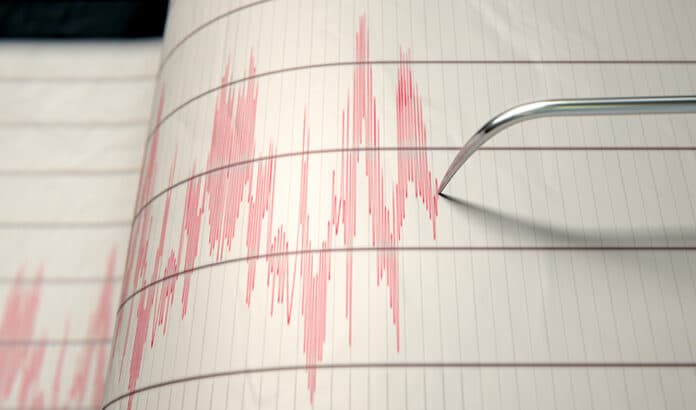The BBC has admitted it was inaccurate for a presenter on a flagship news programme to say that scientists had debunked fears about earthquakes near fracking sites.
The broadcaster has published a correction on its website.

Source: Brian Baptie, BGS
The claim was made by the Today programme presenter, Justin Webb, in an item including an interview with Cuadrilla’s chief executive Francis Egan in April 2022.
Mr Webb said the UK’s decision to stop fracking in 2019 was based in part on fears about earthquakes being caused in areas around fracking sites. He said: “fears that were debunked at the time by scientists”.
In August 2019, fracking by Cuadrilla at its Preston New Road site near Blackpool caused a 2.9ML earthquake, which was felt across the region and led to reports of damage to buildings.
John Hobson, a local campaigner against fracking, complained to the BBC about the claim.
In its response to him, the BBC said:
Mr Hobson told DrillOrDrop:
“The Government placed a moratorium on fracking in 2019 after the Oil and Gas Authority reported that the causes of seismicity are heavily reliant on local geology.
“A Ministerial Statement on 4th November said ‘the limitations of current scientific evidence mean it is difficult to predict the probability and maximum magnitude of any seismic events, either in the Fylde or in other locations’.
“We agree that it was therefore inaccurate to suggest scientists have ‘debunked’ fears about earthquakes near fracking sites.
“In this case the presenter was alluding to a much earlier report by the Royal Society which suggested that seismic risks from fracking were low and likely to be of smaller magnitude than the UK’s largest natural seismic events or those induced by coal mining.”
“It is good that the BBC has finally recognised that the Mr Webb’s comment was ill- informed and misleading. It is frustrating that it took them nearly 6 months to get around to it.”
Two days after the BBC’s response, the government published a report from the British Geological Survey on fracking-induced earthquakes.
The report said forecasting the occurrence and magnitude of earthquakes remained “a scientific challenge for the geoscience community”. It also said there were “significant gaps in our knowledge of the sub-surface structure of potential shale resources” in parts of the UK.
Join us in helping to bring reality and decency back by SUBSCRIBING to our Youtube channel: https://www.youtube.com/channel/UCQ1Ll1ylCg8U19AhNl-NoTg and SUPPORTING US where you can: Award Winning Independent Citizen Media Needs Your Help. PLEASE SUPPORT US FOR JUST £2 A MONTH https://dorseteye.com/donate/







